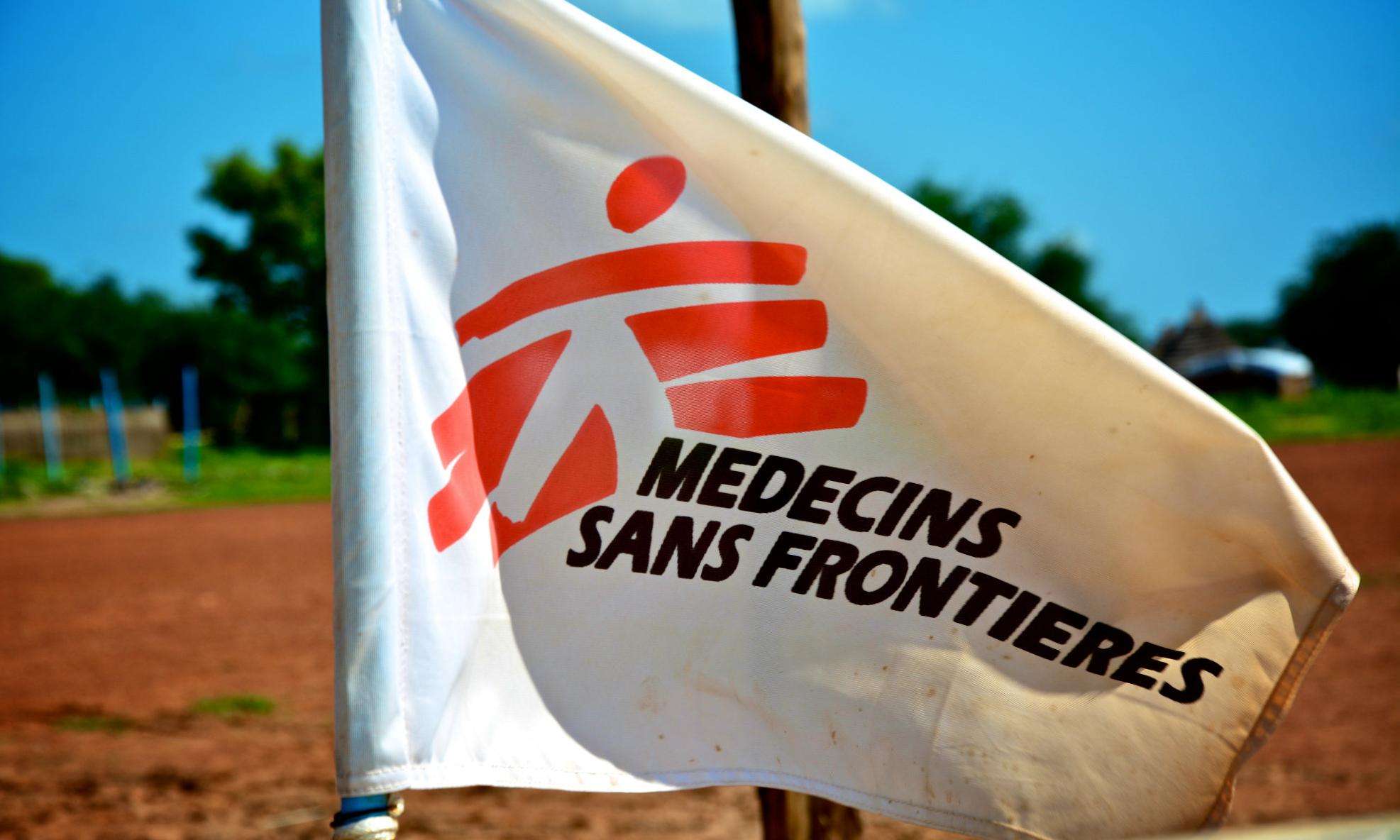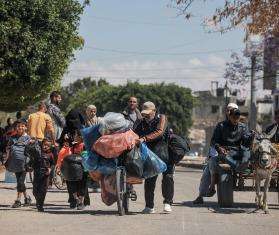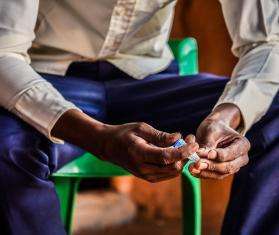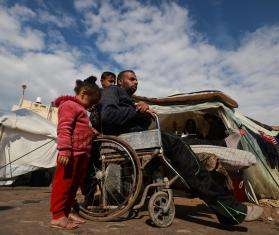The $1 Million Award Represents World's Largest Humanitarian Prize
New York, September 29, 1998 — Doctors Without Borders/Médecins Sans Frontières (MSF) was named the recipient of the 1998 Conrad N. Hilton Humanitarian Prize, the world's largest humanitarian award, at an international humanitarian conference today at The Waldorf=Astoria in New York City. The one-day conference, "Humanitarian Aid Challenges in the New Millennium," was sponsored by the Conrad N. Hilton Foundation.
Former President George Bush joined Barron Hilton, chairman of the Hilton Hotels Corporation, and Donald Hubbs, chairman of the Conrad N. Hilton Foundation, in making the presentation. John McGill, M.D., President of MSF USA, accepted on behalf of the international organization. The prize recognizes the life-saving work of MSF in providing medical care to populations threatened by war, civil strife, epidemics or natural disasters.
Dr. McGill announced that a portion of the $1 million dollars will be used to expand Doctor Without Borders' work in southern Sudan where hundreds of thousands are at immediate risk of death from starvation. The organization is one of the largest providers of medical and nutritional assistance in the famine-devastated region.
Established in 1996, the annual Conrad N. Hilton Humanitarian Prize honors the efforts of a voluntary, charitable or non-governmental organization that has made extraordinary contributions toward alleviating human suffering.
In his presentation, Bush commented, "The need for worldwide humanitarian aid has never been greater. With starvation, disease and violence threatening to overwhelm many of the world's developing countries, it is critical that humanitarian organizations are given the support necessary to bring emergency relief to these endangered populations. The significance of the Conrad N. Hilton Humanitarian Prize cannot be overstated. This prestigious award for MSF acknowledges the often unheralded volunteers who put their careers on hold and often their lives on the line to make the world a better place for all of humanity."
Hilton said, "These medical professionals work in the most remote or dangerous parts of the world. When crisis strikes, they make themselves and their skills available at a moments notice. Their commitment to those in dire need of medical and nutritional aid is exemplary."
Hubbs added, "Millions of people around the world are alive today who would not be if it wasn't for the dedicated efforts of MSF. I can think of no better testament to their accomplishments."
In accepting the prize, Dr. McGill said, "The Conrad N. Hilton Humanitarian Prize honors the thousands of field volunteers and local staff whose worldwide battles against disease, violence and indifference have become the hallmarks of MSF. We receive this generous award with deepest gratitude. It provides us with the means to save more lives in places like Sudan and Kosovo, and to pursue our task of speaking out for those whose voices have been muted by atrocities and neglect."
MSF was established in 1971 by a small group of French doctors. From the start, they were determined to respond rapidly and effectively to public health emergencies with complete independence from political, religious and economic powers. The organization is committed to speaking out publicly about human rights abuses and violations of international humanitarian law witnessed in the course of providing medical relief.
MSF is currently active in more than 80 countries. Its volunteers perform surgery, establish primary health care systems, rehabilitate hospitals, implement nutrition and sanitation programs, carry out immunization campaigns, combat epidemics, and train local medical personnel. In an average month, they treat tens of thousands of children for malnutrition, carry out millions of consultations and perform thousands of surgical operations. Medical professionals from 45 countries volunteer for an average stay of six months in the field.
Judy Miller, director of the Conrad N. Hilton Humanitarian Prize, commented that more than 200 organizations were placed in nomination this year. A prestigious international seven-member jury makes the final selection after intensive research is conducted.
The 1998 prize jury included: Dr. Francis M. Deng, representative of the U.N. Secretary General on Internally Displaced Persons and former Ambassador from Sudan; Messrs. James R. Galbraith and Eric M. Hilton, both directors of the Conrad N. Hilton Foundation; Dr. C.Everett Koop, former Surgeon General of the United States (1981-1989); Robert Seiple, senior advisor for International Religious Freedom, U.S. State Department; Ms. Liv Ullmann, UNICEF Goodwill Ambassador and co-founder, Women's Commission for Refugee Women and Children; and Professor Muhammad Yunus, founder of the Grameen Bank, Bangladesh.
The inaugural Conrad N. Hilton Humanitarian Prize was awarded in 1996 to Operation Smile for its work in providing free reconstructive surgery to correct facial deformities of disadvantaged children and young adults worldwide. Last year's prize was awarded to the International Rescue Committee, one of the world's leading nonsectarian, voluntary organization serving refugees, displaced persons and victims of violent conflict.
The Hilton Foundation was founded in 1944 by the late hotel entrepreneur, Conrad N. Hilton, who also established a separate fund to support the work of the Catholic Sisters. The Foundation and its related entities have assets of $1.8 billion and have dispersed $250 million in grants since their inception. The Foundation does not accept unsolicited proposals. Instead, it proactively initiates major long-term projects and seeks out appropriate organizations to implement them. The Foundation focuses on worldwide blindness and the multi-handicapped blind; clean water supplies for developing countries; early childhood development for infants and toddlers with disabilities; prevention and intervention efforts to stop domestic violence and combat substance abuse among youth; and services for the mentally ill homeless.




